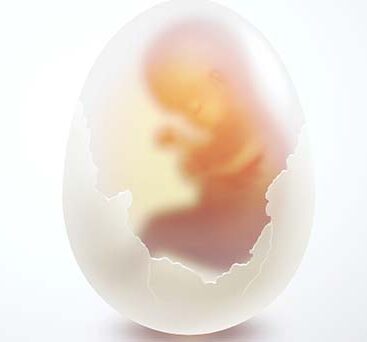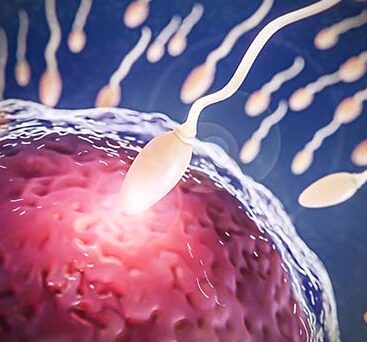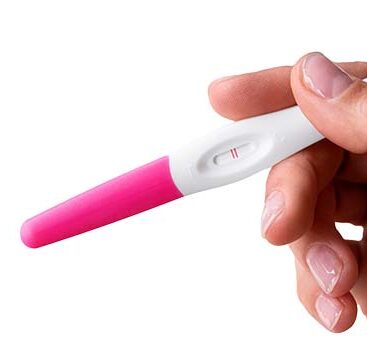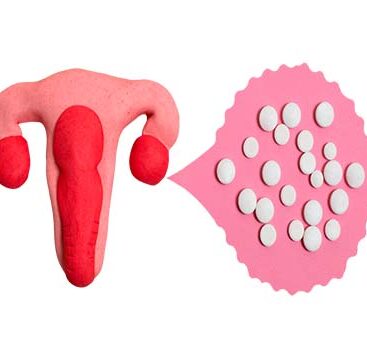
Prof. Dr. Onur Topçu
Gynecology and Obstetrics Specialist
Evaluation of the Infertile Couple
Evaluation of the Infertile Couple
Pregnancy is one of the most beautiful miraculous phenomena in the world. Even though every couple who wants to become a mother and father waits for pregnancy, they may never receive the good news. As a result, they consult a doctor about “why they cannot have a baby.” As a result of many tests, it is determined that men or women have diseases or factors that prevent pregnancy. Couples who are evaluated as infertile, that is, “infertility”, are evaluated together with other methods. Evaluation of the infertile couple addresses many issues and is an important step in finding solutions.
In this content, you can get answers to many questions such as what is infertility, what are its causes, how to diagnose infertile couples, how to evaluate infertile couples, how to detect infertility in men or women, assoc. Dr. You will also be able to see Onur Topçu’s approaches to the treatment of infertility.
What is Infertility?
As mentioned above, the failure to achieve pregnancy due to male or female factors or factors arising from both sides is called infertility. Infertile means “barren” and situations in which “pregnancy” does not occur in the medical sense (naturally), that is, spontaneously, are called “infertility”.
Why is it infertile?
Today, when couples who want to have a baby but cannot have a baby naturally are examined, it is seen that many factors cause infertility. The condition of “infertility”, which should be evaluated separately for men and women, may be related to genetics or may be caused by environmental factors. The main reasons for being infertile are;
inability to ovulate
lifelessness of sperm
Frequent uterine or urinary tract infections
Ovarian obstruction due to diseases in the uterus
Ovarian cysts require removal of the ovaries and pregnancy cannot occur with a single tube.
Low sperm count in men
Many factors such as genetics are the reasons why a person is defined as “infertile”.
The concept of infertile is used for individuals who are medically unable to have a baby on their own.
How to Diagnose Infertility?
Infertility is the inability of men and women to achieve pregnancy within a 1-year period despite regular vaginal intercourse. This 1-year period, in some cases; For example, low ovarian reserve, advanced age, etc., it also decreases to 6 months. If there is a problem that will cause infertility, tests are performed on both men and women to find the problem. Nowadays, many couples undergo many tests and examinations before being diagnosed as “infertile”. Today, many detailed tests are performed by relevant doctors for the infertile condition, in which both men and women are evaluated jointly, and couples are analyzed at equal rates. Therefore, in order to diagnose infertility, men and women must be evaluated with separate tests.
Evaluation of Infertile Fence According to Gender
Couples that can be considered infertile are examined in two groups, and in the first group, the situation in which pregnancy will not be possible if treatment is not applied is determined. In the second group, couples in whom pregnancy can occur even if no treatment is applied are considered.
While 30 to 40% of infertile couples have a problem in the man, 40-50% have a problem in the woman, in 20% to 25% both couples may have a problem. However, it is also possible to encounter “unexplained infertility” at around 10 or 15%.
It is normal to wait 1 year for a normal pregnancy, but research should be started after a period exceeding 1 year. If people are between the ages of 35-40, this period should be 6 months. Because, if there is no problem in the couple;
The probability of pregnancy within 1 month is 20%,
50% chance of pregnancy within 3 months
75% chance of pregnancy within 6 months
The probability of pregnancy within 12 months is considered to be 85%.
According to age;
Pregnancy rate between the ages of 20 and 24 is 85%
Pregnancy rate between the ages of 25-29 is 78%
Pregnancy rate between the ages of 30 and 35 is 63%
The pregnancy rate between the ages of 35-39 is considered to be 52%.
If “no” pregnancy occurs according to time and age, couples are evaluated separately.
Here are the stages of how men and women are diagnosed as infertile…
Evaluation of Women in Infertility
Although the causes of infertility in women are various, it is generally considered to be due to “ovulation”. Ovulatory dysfunction occurs if there is a developmental disorder during and after ovulation in the menstrual cycle. If there is a lack of follicle development or disorder, anovulation is detected even when there is no ovulation. Because the factors that cause disruption of normal follicle development and lack of ovulation can be detected immediately.
Stress
severe neuroses
Obesity
exercising excessively
brain related problem
Increase in prolactin hormone
Having polycystic ovary disease
Ovarian tumors
Underactive or overactive thyroid
Disease in the adrenal glands
Many conditions or diseases that prevent ovulation or disrupt the development of ovulation, such as liver diseases, can be resolved with medication and ovulation therapy.
If the woman has a problem with the tubes, “infertility” may occur again. The function of the tubes is not only to provide passage to the egg, sperm or fertilized egg, but also to create the necessary environment from the secretions and enzymatic activities of the epithelial cells to the capture of the egg and the transport of the sperm. Likewise, the uterus can also lay the groundwork for infertility problems in women. Many problems such as congenital uterine anomalies, adhesions in the uterus, polyps, endometritis, infections, and problems in the uterine walls are considered as uterine factor infertility.
In the case of many conditions listed above and those not yet mentioned, treatment is absolutely necessary for “pregnancy to occur”. We can see that “infertile” patients can experience “pregnancy” with many treatment supports such as uterine film, opening of tube obstruction with medication, and ovulation-inducing drug treatments. If “results” cannot be obtained despite all efforts, in vitro fertilization treatment is recommended to expectant mothers.
Evaluation of Men in Infertility
The “infertile” condition is at least as common in men as in women. For this reason, if a man and a woman want pregnancy but cannot achieve it, they must seek investigation and treatment “together”.
For male infertility, a history, examination and semen analysis will be required. If a man ages, a decrease in his reproductive potential is a condition that can be observed. Therefore, men are evaluated in many aspects such as smoking, alcohol consumption, and frequency of intercourse. Because even a recent illness can affect sperm count and motility. For this reason, the evaluation of men is more detailed.
The father-to-be who applies to a urologist is first evaluated to determine whether he has sexual dysfunction, if any, and the medications he uses. Afterwards, a sperm test is performed. Depending on the sperm test results, further evaluations can be made if necessary. It can be evaluated with ultrasound and evaluated for varicocele along with hormone tests. The cause of “infertility” in men, which is examined in more detail with semen analysis, is determined after many studies.
How is semen analysis done?
This analysis, which is performed on men after 3-4 days of sexual abstinence, is done in the laboratory. When you learn about the existence of conditions that may affect the semen analysis (febrile illness, etc.), you should definitely have a semen analysis again.
If there are cases where there is no sperm, a biopsy is taken from the testicle and if sperm is found, it is thought that there is a blockage in your ducts that prevents pregnancy from occurring. Therefore, it would be appropriate to take a biopsy from the testicle after semen analysis.
Ankara Evaluation of Infertile Couple | Infertility Treatment
Assoc. Prof. carries out various tests and examinations to determine the factors that cause infertility. Dr. With Onur Topçu, you can determine all the factors that prevent pregnancy in a short time and start the necessary treatments. Assoc. Prof. is a gynecologist frequently preferred by infertile couples in Ankara. Dr. Take action as soon as possible to receive the baby good news from Onur Topçu!
Prof. Dr. H. Onur Topçu
Gynecology & Obstetrics-In Vitro Fertilization and Advanced Gynecological Endoscopy Specialist
PATIENT COMMENTS
Onur teacher was very supportive and encouraging at every stage of the process, from the very beginning to after the surgery. He informed us in the best and most accurate way by explaining all the details of the process completely and clearly. I would like to thank my teacher Onur very much and definitely recommend him to those who are looking for a doctor in this field.
Arz*** A***








